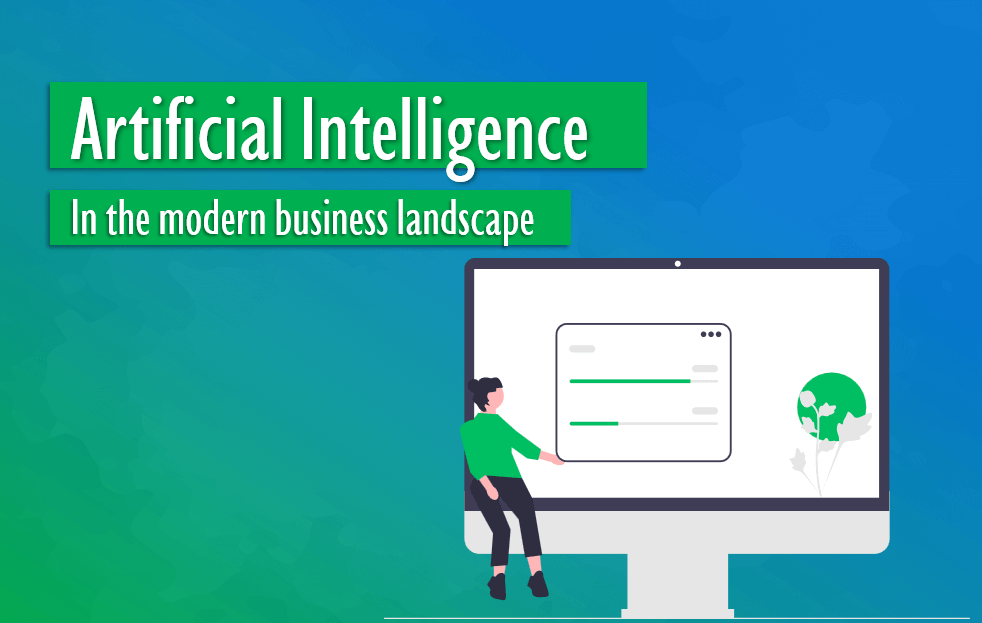
Artificial Intelligence is not a new concept. We’ve all imagined a world full of self-driving cars, wanted Cher’s closet from Clueless, or watched Disney’s Wall-E. These are all examples of the potential of AI. But a world driven by AI is no longer just a concept, it’s becoming a reality.
Chances are you’ve used (or at least head of) Siri and Alexa. Artificial intelligence.
Maybe you’ve used voice-to-text functionality. Artificial intelligence.
These applications are common in many day-to-day lives, but what about in business? Business owners and IT administrators are beginning to see the benefits of AI when it comes to saving costs, streamlining processes, and increasing security.
I am getting ahead of myself. Let’s take a small step backwards.
What is Artificial Intelligence?
Put simply, Artificial Intelligence is a computer or computer system with the ability to carry out tasks that are commonly associated with human intelligence. These would include tasks that require human abilities such as speech recognition, decision-making, problem-solving, and more.
If we take a closer look at artificial intelligence, there are two prominent subcategories:
Machine Learning: Machine Learning uses algorithms to analyze compiled data and make predictions. In this case, the machine requires human intervention to train the machine by inputting data, defining the algorithm, and testing the system. With machine learning, accuracy improves as the system is used repeatedly and exposed to more data.
Deep Learning: Deep learning is a more detailed type of machine learning. It uses Artificial Neural Networks (ANNs), a multi-layer system that allows the machine to define data characteristics without the initial human set-up required with traditional machine learning. Because of its more complex and sophisticated set-up, deep learning systems can perform more complex tasks by analyzing a wider range of data at once. Think of a self-driving car once it’s on the road and must respond in real time.
Why Are Businesses Adopting Artificial Intelligence?
It’s nearly impossible to ignore the economic impacts of artificial intelligence. A study conducted by MarketsandMarkets shows the AI market size is predicted to reach $407 billion by 2027, over 4.5x higher than its estimated revenue in 2022. This growth can partially be attributed to the growing presence of AI in businesses.
Forbes Advisor conducted a survey of 600 business owners who use or plan to adopt artificial intelligence into their business, and the results showed that 59% of respondents expected AI to save costs, and 42% planned to use AI to streamline business operations.
Whether it’s for internal communications, customer experience, or improved security, many businesses have adopted or are in the process of adopting artificial intelligence into their operations. As this trend continues and AI systems advance, artificial intelligence will be a requirement for businesses looking to stay competitive.
How are Businesses Using Artificial Intelligence?
There are hundreds of applications for artificial intelligence, but there are a few that I think benefit most businesses and will help to keep a competitive edge. Let’s take a look:
Cybersecurity
Cybersecurity is one of the most common ways businesses choose to use AI. Forbes Advisor revealed that over half of surveyed businesses already use AI for cybersecurity and fraud management. Artificial intelligence is a key component in new security solutions such as EDR (endpoint detection and response) and SIEM (security information and event management). These solutions can identify bad actors and trigger a response to keep your environment more secure. But, AI isn’t meant to be your complete security solution. Rather, it allows the human reaction to be more proactive. IBM’s 2023 Cost of a Data Breach Report revealed that organizations with a high use of AI and automation for security identified and contained breaches 108 days faster than organizations that didn’t use AI. With artificial intelligence, human action is more efficient and effective than would otherwise be possible without AI.
Customer Relationship Management
When it comes to CRM, artificial intelligence is here to improve interactions with clients. Forbes reported that 73% of businesses use or plan to use AI for instant messaging. In some instances, this will look like AI-powered chatbots carrying out conversations with customers. In other instances, businesses are using AI to optimize emails, and personalize messages. This might look like a company sending an email to clients, but rather than sending a generic message, each email can be personalized with the client’s name. Little details like this will help make communications more personal and meaningful. (You’re also more likely to get a response compared to generic mass emails.)
Automation and Optimization
The potential use cases for streamlining operations with AI are limitless. AI can be used to power dynamic automation scenarios you might not even think possible. Azure Cognitive Analytics is just one example of the many technologies already available to help you achieve an optimization goal. We’re using Azure Cognitive Analytics with our customers to eliminate manual, time-consuming processes like evaluating and sorting thousands of documents and other files based on topic, theme, or data contained.
Is AI Going to Take My Job?
While AI is becoming increasingly sophisticated, it is not going to take your job. There is still a need for human intelligence, human response, and especially human revision. Even with the AI applications listed above, a human touch is still required.
Artificial intelligence is not reliable, nor unbiased enough to be trusted with your job. Just look at the Mata v. Avianca case. In early 2023, Mata’s lawyers used ChatGPT to write a court briefing, and the AI system cited six non-existent court cases within the ten-page document.
Needless to say, AI is not going to take your job. But that doesn’t mean you want to ignore it. There is a high likelihood that AI will change the scope of your job. With capabilities developing to assist with tedious tasks such as transcribing meetings, summarizing call notes, or turning your talking points into a professional presentation, AI might become your new assistant. AI is a tool, not a replacement, and it’s one with the potential to boost efficiency and productivity, while saving you time. So no, AI is not going to take your job, but another person who is able to use AI to do your job more efficiently might.
Why Should I Care?
Artificial intelligence will be part of day-to-day operations soon enough. It’s better to start understanding what it can do and how it can benefit you now, rather than playing catch up later. There are plenty of applications for AI outside of what I covered in this blog, just look at this Forbes survey.
If AI seems intimidating, or you’re not sure where to even start, sign up for our 12th Annual Sporting Clay Event and hear from a panel of experts on Artificial Intelligence and Automation. Can’t make it to the event? No worries! Contact us today and learn what AI-based tools are available to help your business keep a competitive edge when it comes to IT.
Anna Ross, PEI




